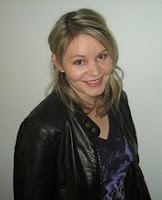The word “networking” strikes terror to my introvert heart. Schmoozing inevitably leads to foot-in-mouth disease, when I try to act cool, and instead melt into a sticky pool of gibberish.
At this year’s PPWC, I followed director Bonnie Hagan’s advice, and it worked. In the conference brochure, Bonnie recommended “to talk to someone you’ve never met before about your writing project and ask about theirs.”
The second half of that challenge transformed my conference from the usual wallflower disaster. Well, if you ignore that one little fiasco. But we’ll get to that.
The introvert is blessed in this age of the internet. Networking occurs through crafted blog posts, tweeting, two sentence social media conversations, and that old dinosaur, e-mail. Face-to-face, real time human interaction can be successfully avoided by the pathologically shy for extended periods of time. Except at a writers’ conference.
Part of my program of self-improvement as a conference attendee and writer was to step up my volunteer service. Getting behind the scenes does serve personal interests as it opens opportunities to get the inside scoop from agents, editors, and successful writers. The primary goal, however, is to serve the writing community.
I was one of three volunteers assisting Jennifer LaPointe with the pitch sessions. Since I had not requested a formal pitch session, it was a relaxing assignment. I watched others holding their bundle of dreams in sweaty hands, faces pale, palpitating hearts nearly audible, as they waited for their moment with an agent or editor.
I comforted writers with assurances that there was a trash can available, if they thought they were going to throw up. I handed out half sheets for them to record vital information they might forget in the pitch room, like their names. I was the model of helpfulness.
And then a woman approached the desk unlike all the rest. She seemed oddly calm and self-assured.
“May I have your pitch card?” I asked. “No one gets to pitch without their card.”
She studied me for the briefest moment, then announced, “I’m here to listen to pitches.”
It occurred to me, a bit late, to glance at her name badge. Andrea Brown, of the Andrea Brown Literary Agency.
The pitch waiting room fell into a hushed silence.
“I’m so sorry, Ms. Brown,” I said. “You obviously won’t be needing a pitch appointment, ha ha.”
She didn’t laugh. A more competent pitch volunteer jumped into action, leading Ms. Brown to the pitch room. The conversation in the room resumed, a comforting, if jittery, hum.
In past years, this might have sent me crawling back inside my introvert’s shell. As the next nervous person approached the pitch desk, I realized I was too busy with volunteer duties to linger on my epic fail.
I listened as others told me about their novels, memoirs, and cookbooks. Instead of focusing myopically on my own goals, I watched how other people approached theirs. In a read and critique session, I forgot about my own precious one page, and really listened as people tried to catch an agent’s attention in 2 ½ minutes or less.
At lunches and dinner, I learned that I’m not the only writer juggling an impossible schedule with career and family obligations. We’re all struggling to fit writing time into our busy lives.
The pitch room incident did not derail my determination to network. If we met at the conference, after my epic fail, you may remember me. I was the lady squinting at your name tag before opening my mouth.
About the writer: Cathy Dilts is an assistant editor for the PPW blog. She writes cozy murder mystery and inspirational fiction, and has recently begun writing short stories because they’re easier to fit in to her busy schedule. Cathy’s publication experience is similar to fishing – getting lots of nibbles on the line, but no bites yet.
In her spare time, she enjoys raised bed gardening, which her husband claims look the perfect size for burying bodies, while reminding her that you can’t get rid of the bones.






